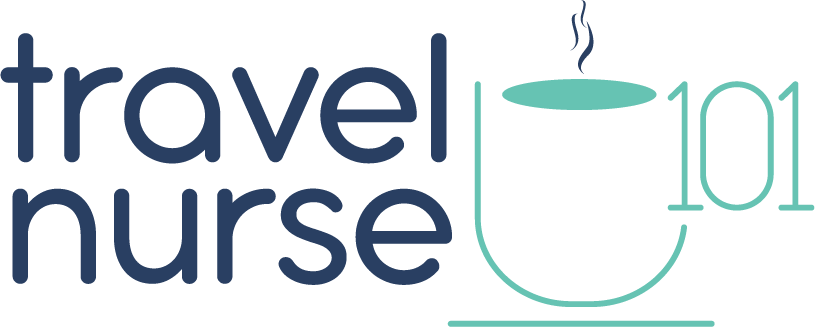“You’re just the traveler.” If you’ve ever heard that phrase said with a tone, you know exactly where this is going.
October is National Bullying Prevention Month, a time to shine a light on a problem that doesn’t just live in schools—it’s alive and well in healthcare, too. And for travel nurses, the reality can hit even harder. You walk into a new unit ready to help, eager to learn, and excited for a fresh start, but sometimes, instead of support, you’re met with silence, side-eyes, or subtle sabotage.
Let’s be honest: no one becomes a nurse to feel unwelcome. But bullying in nursing is real, and if you’ve ever been on the receiving end, you know how isolating it can feel. It’s time we start talking about it and, more importantly, learning how to handle it.
Understanding What Bullying Looks Like
Bullying in nursing isn’t always loud or obvious. Sometimes it’s whispered, hidden in the small moments that slowly chip away at your confidence.
It can look like:
- Unfair assignments — like repeatedly getting the heaviest or most complex patient load, or being floated far more often than staff nurses (even though some facilities do require travelers to float first by policy).
- Withholding information — Not being told about new or critical patient orders, lab results, or medication changes. Leaving out important updates from huddle or report, like isolation status or new safety precautions. Not sharing workflow details that everyone else seems to know — like where supplies are kept or which forms to use.
Failing to inform you about policy updates or unit protocols (like which provider to page or how to escalate concerns). - Withholding help when you’re clearly overwhelmed or need assistance.
- Exclusion from breaks, reports, or key communication. Being excluded from group chats, lunches, or team activities that help build belonging.
- Eye rolls, gossip, or sarcasm when you ask a question or seek clarification. Hearing rumors or passive-aggressive comments about “how easy travelers have it.”
- Public criticism or “correcting” you in front of patients or colleagues.
- Being talked over or ignored during a report or huddle.
- Having your ideas or assessments dismissed until a staff nurse repeats them.
- Mocking or belittling comments about your experience level, background, or “traveler pay.”
Whether it’s passive-aggressive or outright cruel, one thing is certain: it’s not normal, and it’s not acceptable!
Why It Happens (and Why It’s Not Your Fault)
Here’s the truth: bullying often has nothing to do with you. Some staff see travelers as outsiders—or worse, as competition. Others are burned out, overworked, or unhappy, and project that onto the new face in the room.
But you didn’t cause it, and you don’t deserve it. You’re there because you bring something valuable—experience, adaptability, and the willingness to show up where help is needed most. That alone deserves respect.
How to Protect Yourself and Take Back Your Power
- Document Everything.
Write down dates, times, and what happened—just the facts. This isn’t about revenge; it’s about protecting yourself and ensuring accountability if things escalate. - Loop in Your Recruiter and Clinical Support.
Your agency’s clinical team is there for exactly this reason. They can step in, help mediate, or pull you from a toxic environment if necessary. - Set Boundaries Early.
Confidence matters. Be kind, be professional, but don’t tolerate disrespect. You teach others how to treat you by how you respond the first time it happens. - Find Your Allies.
There’s always at least one person on the unit who’s kind, fair, and welcoming. Build those connections; they’ll help you stay grounded. - Prioritize Recovery.
Toxic environments drain you. Lean on your support system, take your days off seriously, and don’t hesitate to ask for help if it’s affecting your mental health.
The Power of Positivity: How Showing Up With Heart Changes Everything
In my own travel nursing journey, I’ve found that how you show up usually makes all the difference. When I walk into a new unit with a positive, helpful attitude—ready to jump in, work hard, and truly be part of the team rather than “just the traveler”, people notice. I make a genuine effort to get to know the staff, learn their routines, and find ways to be a real asset to their unit. And because of that, most teams have welcomed me with open arms, treating me like family instead of a temporary visitor. Those are the assignments that leave a mark—the ones where you feel valued, connected, and already thinking about when you can come back.
Breaking the Cycle
“Nurses eat their young” has been said for decades — but it doesn’t have to be our truth anymore.
Still, it’s no secret that some units can start to feel like high school all over again. Cliques, gossip, and “mean-girl” behavior have no place in a professional environment, yet many nurses, especially travelers, experience it firsthand. These dynamics can isolate new team members, erode trust, and make collaboration harder than it should ever be in a career built on care.
Travel nurses bring flexibility, knowledge, and a fresh perspective to every team they join. Instead of resentment, that deserves recognition. Because when travelers are embraced as part of the team, everyone benefits, patients included.
By standing up, speaking out, and supporting one another, we can rewrite the culture of nursing — one unit, one traveler, one act of kindness at a time. Let’s trade the cliques for collaboration and the competition for community.
Nursing is hard enough; we’re stronger when we’ve got each other’s backs.
If You’re Struggling Right Now
If you’re dealing with bullying on assignment, please know this: you’re not alone, and you’re not the problem. You have support through Travel Nurse 101, your agency, through your travel nurse community, and through others who’ve been exactly where you are.
Your presence matters. Your care makes a difference. And no one — no one — gets to take that from you. I am here rooting you on. Happy Travels!


